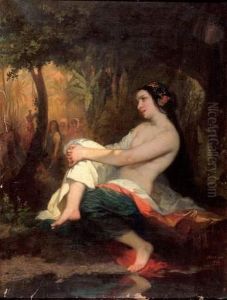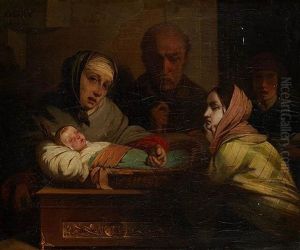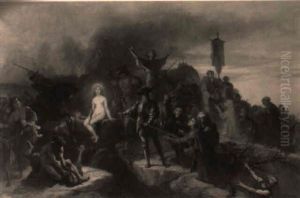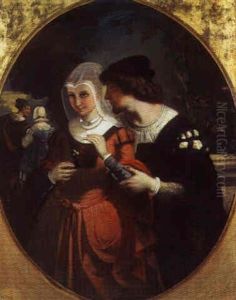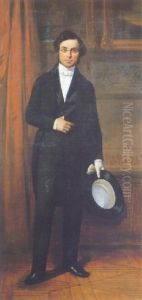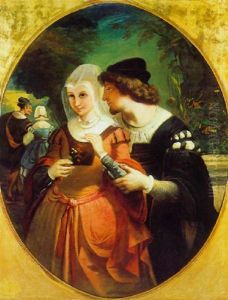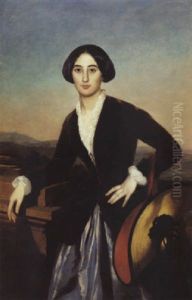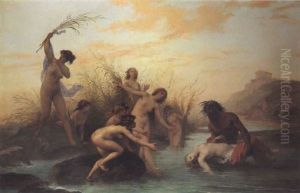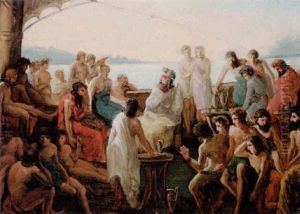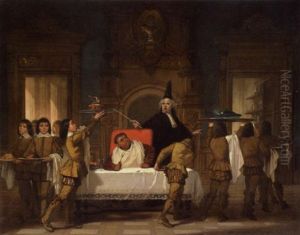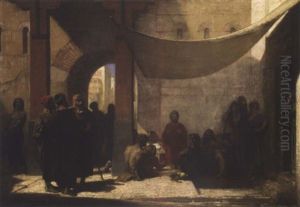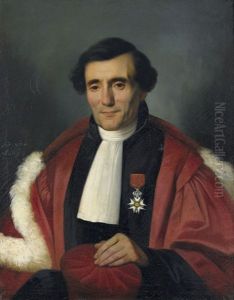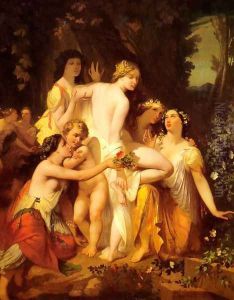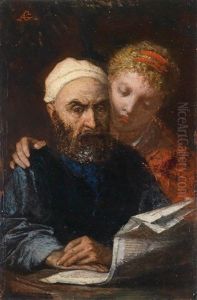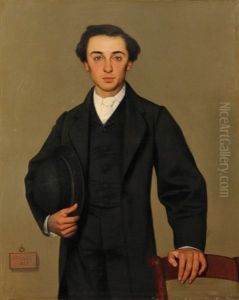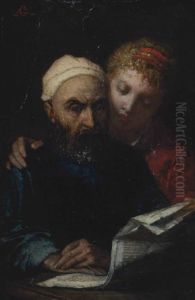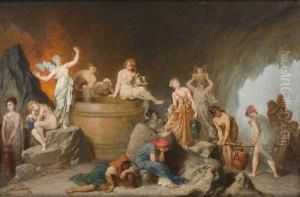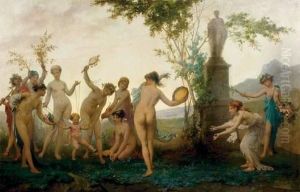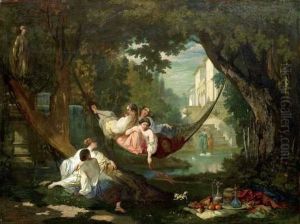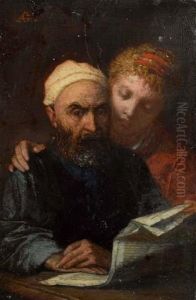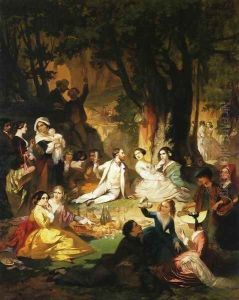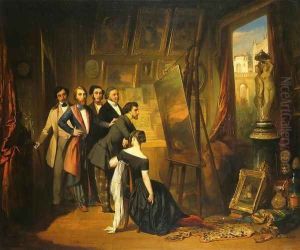Auguste Glaize Paintings
Auguste-Barthélemy Glaize, born in Montpellier, France, was a 19th-century French painter known for his historical, genre, and allegorical paintings. He was born into an artistic family; his father, Pierre-Marie Glaize, was also a painter, which provided a creatively nurturing environment that influenced his path in the arts. Auguste Glaize studied under his father before moving to Paris to further his education.
In Paris, Glaize entered the École des Beaux-Arts and worked under the tutelage of renowned artists such as Alexandre-Denis Abel de Pujol and François-Édouard Picot. He quickly adopted the academic style of painting, which was prevalent at the time. His talent was recognized early on as he began to exhibit at the Paris Salon, the official art exhibition of the Académie des Beaux-Arts in Paris, from 1833 onwards.
Throughout his career, Glaize was known for his ability to infuse his historical and mythological scenes with a strong sense of drama and emotion. His works often depicted scenes from ancient history or literature, characterized by precise detail and vivid coloration. In addition to historical and allegorical themes, Glaize also painted murals for various public and private buildings, including the church of St. Severin in Paris and the Palais de Justice in his hometown of Montpellier.
Glaize’s contributions to art were recognized by the French government, and he was awarded the Legion of Honour in 1867. Despite his achievements, he did not gain the same level of lasting fame as some of his contemporaries. Over time, the popularity of academic art waned, and with it, the recognition of artists like Glaize. However, his works can still be found in museums and collections in France and around the world, offering a glimpse into the rich historical tapestry of 19th-century French painting. Auguste-Barthélemy Glaize passed away in 1893, leaving behind a legacy of historical canvases that continue to be studied and appreciated for their craftsmanship and portrayal of the human spirit.
